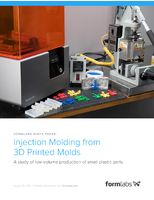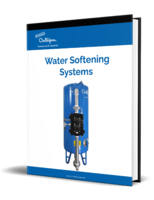IPC and ECIA to work on component obsolesce guideline.
Share:
Press Release Summary:
IPC and the Electronic Components Industry Association are planning to create an industry guideline for best practices of communicating component obsolescence. Document will address issues such as the time between announcement of manufacturer's intention to cease production of component and date component will no longer be manufactured; how component manufacturer should announce its intention to discontinue a component; and notification of estimated available quantity.
Original Press Release:
IPC and ECIA to Work on Component Obsolesce Guideline
BANNOCKBURN, Ill., USA, - When a component manufacturer discontinues a particular component, it creates a ripple effect throughout the electronics assembly industry, leaving EMS providers with myriad critical questions to answer. Is there an alternative source for the component? Is there a substitute component that will work? If no suitable alternative is found, the product must be redesigned. To help alleviate the situation, IPC and the Electronic Components Industry Association (ECIA) are planning to create an industry guideline for the best practices of communicating component obsolescence.
According to Susan Filz, IPC director of industry programs, component obsolescence costs the EMS provider valuable time and resources, and impairs the supply chain as a whole. "It is not a new problem. However, recent environmental regulations and the economic situation have brought component obsolescence to critical mass," says Filz. "The RoHS legislation is a particularly good example of how a whole series of components was, for the most part, wiped out when it was introduced in 2006."
The document will address issues such as:
o The time between the announcement of a manufacturer's intention to cease production of a component and the date the component will no longer be manufactured, so assembly companies are ensured an adequate time to prepare;
o How the component manufacturer should announce its intention to discontinue a component, so the industry has a streamlined source of information; and
o Notification of estimated available quantity, so the industry can better determine the best short-term strategy.
"The goal would be to strengthen the communication between the assembly industry, authorized distribution and component manufacturers for the good of the electronics industry supply chain," said Robert Willis, executive vice president and CTO, ECIA.
A joint committee of select representatives of IPC's EMS Management Council Steering Committee and members of the ECIA will meet on April 23, in conjunction with ECIA's Technology Summit, to strategize on building a consensus body of participants, the process to develop the document, and the document's intended scope and content.
For more information regarding the guideline, contact Filz at SusanFilz@ipc.org or Willis at Rwillis@eciaonline.org.
About IPC
IPC (www.IPC.org) is a global trade association based in Bannockburn, Ill., dedicated to the competitive excellence and financial success of its 3,100 member companies which represent all facets of the electronics industry, including design, printed board manufacturing, electronics assembly and test. As a member-driven organization and leading source for industry standards, training, market research and public policy advocacy, IPC supports programs to meet the needs of an estimated $2.02 trillion global electronics industry. IPC maintains additional offices in Taos, N.M.; Arlington, Va.; Stockholm, Sweden; Moscow, Russia; Bangalore, India; and Shanghai, Shenzhen and Beijing, China.




